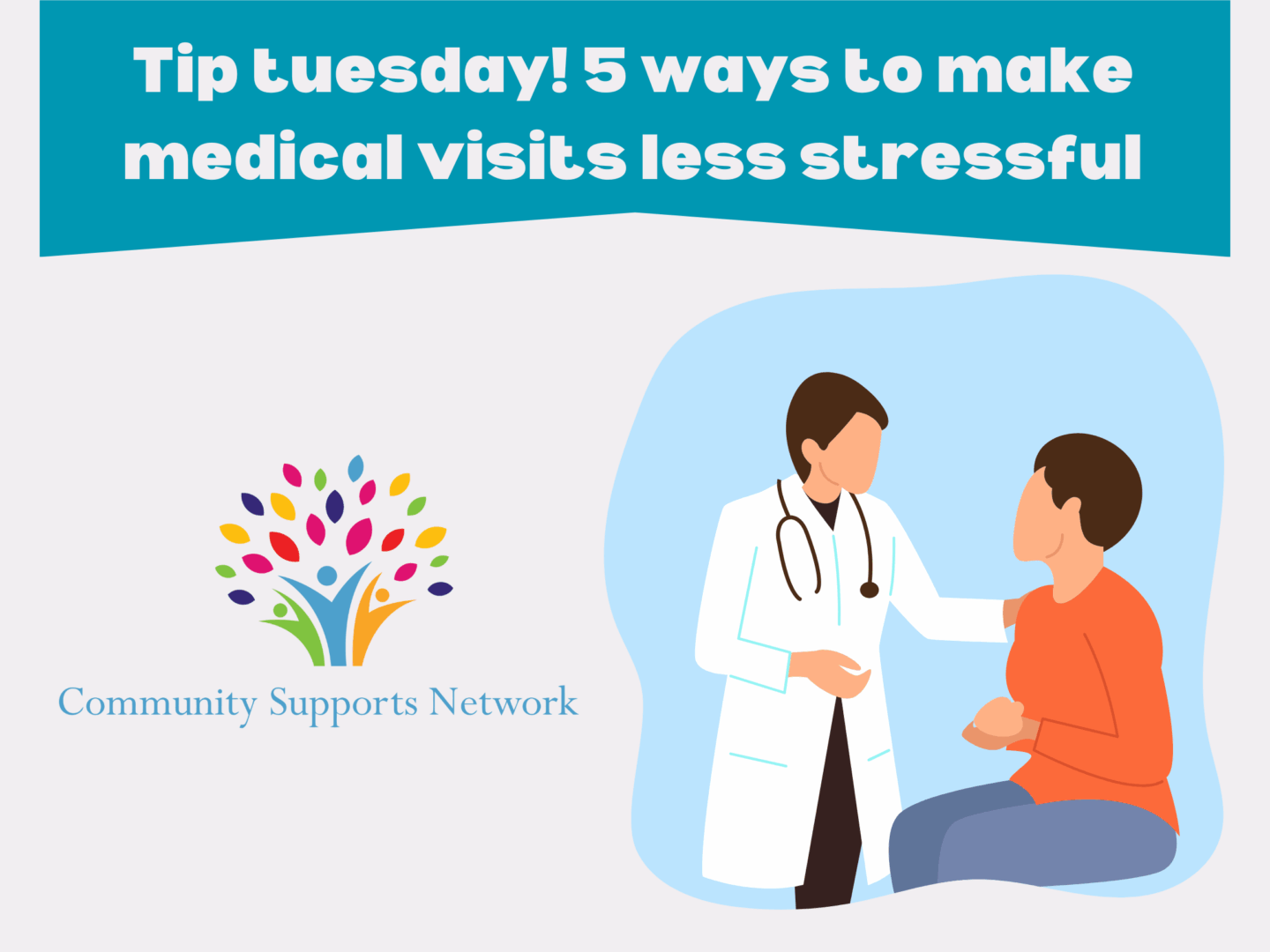
Doctor visits are an important part of staying healthy, but for individuals with disabilities and their families, they can also bring stress and anxiety. Unfamiliar settings, long wait times, and sensory challenges can make appointments overwhelming — but with a little preparation, they can go much more smoothly.
At Community Supports Network (CSN), we know that planning ahead and advocating for individualized care makes a world of difference. Here are five practical tips to help you feel more confident and prepared for your next medical visit:
1. Prepare Ahead of Time
Before the appointment, write down:
- A list of symptoms, concerns, or questions you want to address.
- Updates on any medications or therapies.
- Important details about changes in behavior, sleep, or eating habits.
This preparation helps ensure nothing gets overlooked when you’re face-to-face with the provider.
2. Bring Comfort Items
A doctor’s office can be full of overwhelming sights, sounds, and smells.
- Pack a comfort item such as a favorite toy, blanket, or weighted lap pad.
- Noise-canceling headphones or sunglasses can help reduce sensory overload in busy waiting rooms.
- A small snack or drink (if allowed) can also provide comfort during long waits.
3. Use a Visual Schedule or Social Story
For many individuals, especially children, knowing what to expect can help reduce anxiety.
- Create a visual schedule that shows each step of the visit, from check-in to leaving.
- If possible, role-play the appointment at home using a social story or practice kit (pretend stethoscope, bandages, etc.).
This approach builds familiarity and confidence.
4. Advocate for Your Needs
You are your loved one’s best advocate!
- Let the office staff know about any accommodations your family member may need, such as extra time, a quiet room, or specific communication methods.
- Don’t hesitate to ask for instructions in plain language or written form if needed.
- Share any relevant care plans or notes from other specialists so everyone is on the same page.
5. Plan for Downtime After the Appointment
Medical visits can be emotionally and physically exhausting.
- Schedule some calm, recovery time after the appointment, whether that’s relaxing at home, going for a quiet walk, or watching a favorite movie.
- This helps prevent overwhelm and allows everyone to decompress.
Final Thoughts
Healthcare can be challenging to navigate, but with the right preparation and mindset, doctor visits can become more manageable and less stressful. At CSN, we’re here to support families in every step of their journey — ensuring individuals with disabilities receive the care, respect, and compassion they deserve.
By taking small steps to plan ahead, you can turn appointments into positive experiences that build trust and confidence for the future.
Written by Jessica Quarello, Brand Communications Manager


